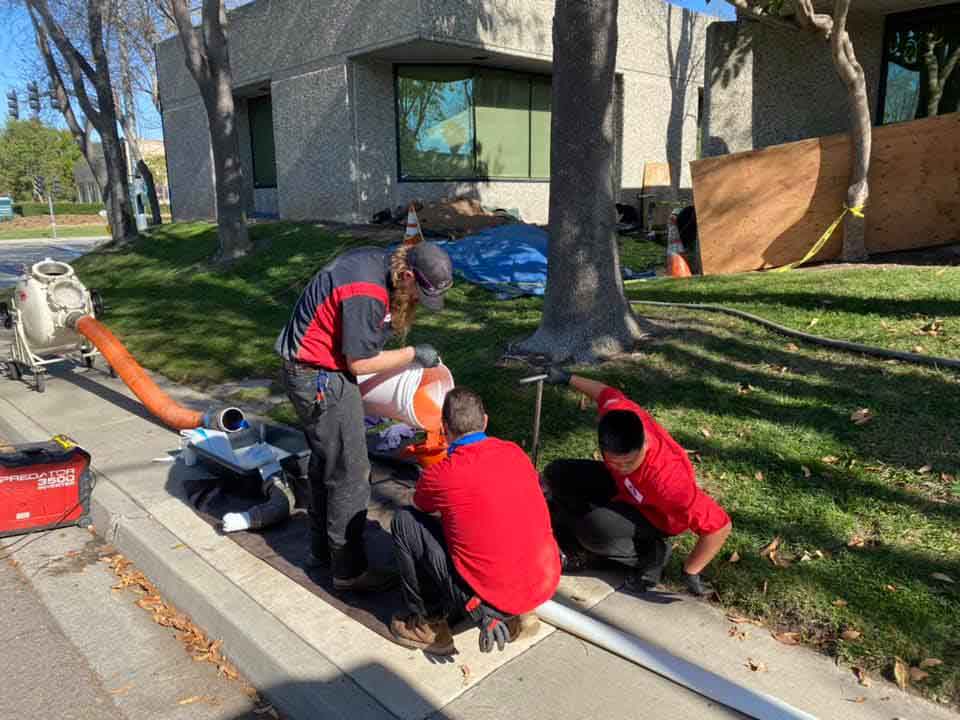When pipes start to suffer from damage, it is only right to repair them and make sure they are restored to their former condition. Otherwise, the damage can worsen and create problems that can be even more expensive and time-consuming to resolve. One method of pipe repair that our experts at A-1 Total Service Plumbing recommend is cured-in-place-pipe (CIPP) lining.
Read on as we discuss the basics of pipe relining in La Habra, CA, and when it is an ideal solution to consider.
How It Works
Cured-in-place pipe (CIPP) lining is a trenchless pipe rehabilitation method that uses an resin-saturated felt tube made of polyester, fiberglass cloth for resin impregnation, pulled through the damaged section of pipe, eliminating the need to dig trenches or access the line directly. This process can be used for both potable water and sewer pipelines.
Trenchless pipelining begins with inspecting the existing pipe system using high definition CCTV equipment, then cleaning and preparing the pipeline surface. A resin-saturated liner is then inserted into the pipe and inflated to ensure it fits snugly against the inner walls of the existing pipe structure. Once cured, the liner becomes a solid, impenetrable pipe that is structurally sound and corrosion-resistant.
When is CIPP Ideal?
Trenchless pipe relining is suitable for any pipe that has experienced minor damage, such as corrosion or small cracks. In many cases, even with major damage such as collapse or missing sections of pipe, trenchless repairs are available as an option. It seals off any leaks and reinforces the structural integrity of the existing pipe.
It is also effective for pipe root intrusion repair, as well as for displaced joints and offset pipes. Additionally, CIPP is ideal for pipe systems that are difficult to access directly due to location, such as those buried under buildings or roads.
Benefits
This underground sewer line repair is often more cost effective than traditional pipe replacement because it requires minimal excavation, which means less property damage. This also means you will not have to deal with the expensive costs of repairing and replacing damaged landscaping, driveways, sidewalks, etc.
Additionally, since there’s no need to dig trenches to access the pipes, this pipe reline method minimizes downtime for businesses that require uninterrupted service from their plumbing system.
Finally, this process works on different pipe materials, including clay, concrete, cast iron and steel. Cast iron pipe relining is commonly repaired with CIPP and requires descaling, but no additional repairs, such as joint sealing or repointing.
A-1 Total Service Plumbing is a fully licensed and insured company that provides quality pipe repair services. Contact our team today to learn more about how we can help.

